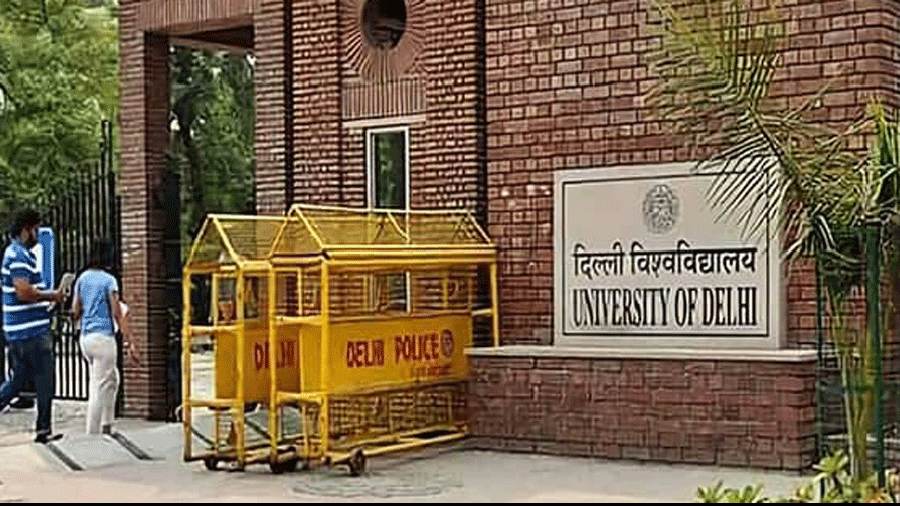Nudged by the government and the University Grants Commission, Delhi University is set to expand its involvement in distance education.
The university’s School of Open Learning (SOL) has approved distance-mode honours courses in subjects like psychology, operational research, environmental sciences, computer science, and statistics from the coming academic session that begins later this year.
Formal approvals are now awaited from the university’s academic council and executive council, said J. Khuntia, former academic council member and an SOL faculty member.
The move reflects the Centre’s thrust on distance and online modes of higher education, aimed at lowering government expenditure on the sector and raising enrolment figures.
The government’s National Education Policy envisages increasing the gross enrolment ratio — the proportion of youths aged 18 to 24 who are enrolled in higher education — from the current 27 per cent to 50 per cent by 2035. The government expects online and distance education to be the main vehicles for raising the ratio.
An education ministry official said the government was preparing a bill to set up a National Digital University that will offer degrees to students based on the credits they earn from one or multiple institutions.
Khuntia said that enrolment in the “open (distance) learning courses” offered by the SOL had already increased. “This (academic) year, nearly 1.2 lakh students have taken admission (to distance courses) against (the past average of) nearly 1 lakh,” he said.
This happened after the university increased the number of courses it offers in the distance mode this academic year, bringing in programmes like BBA, MBA, economics honours, and bachelor’s and master’s courses in library and information sciences.
In previous years, the SOL offered honours courses only in a handful of programmes such as political science, English, and BCom.
The SOL figure of 1.2 lakh enrolments compares favourably with regular admissions to Delhi University, which offers about 1 lakh seats in the regular (physical) mode. These include about 68,000 undergraduate seats, of which around 8,000 have remained vacant this academic year.
Those enrolling in distance courses include working people, homemakers and some of those who tried but failed to secure admission to regular courses. The SOL provides study material and organises periodic “contact classes” for students during holidays.
“Students can learn in the distance mode while they work.
Distance learning is going to get a major push,” Khuntia said. Distance learning is cheaper for both the government and the students. It dispenses with the need for regular faculty members and permanent infrastructure.











